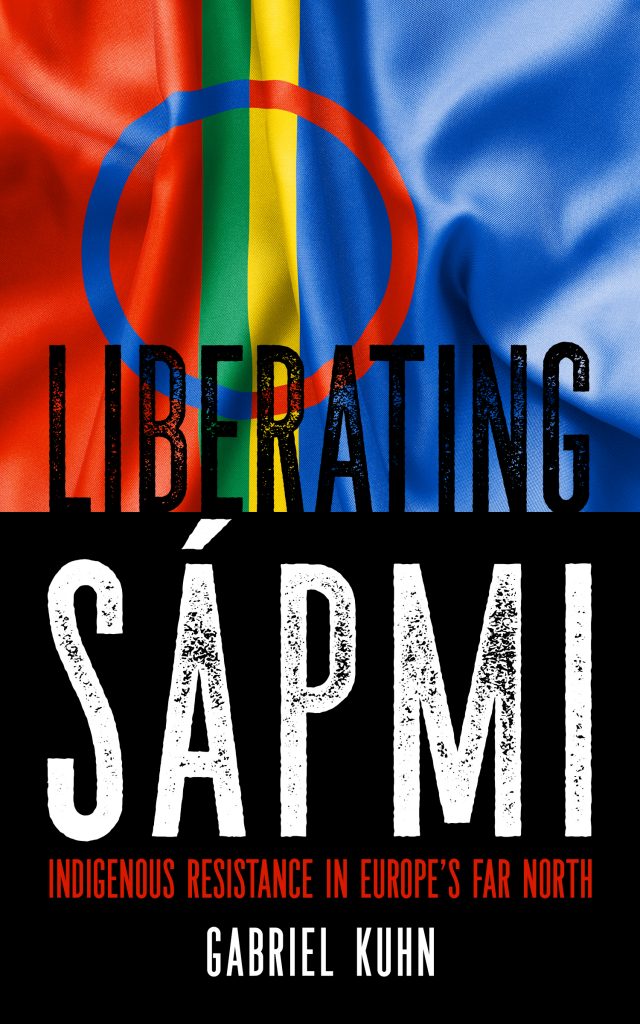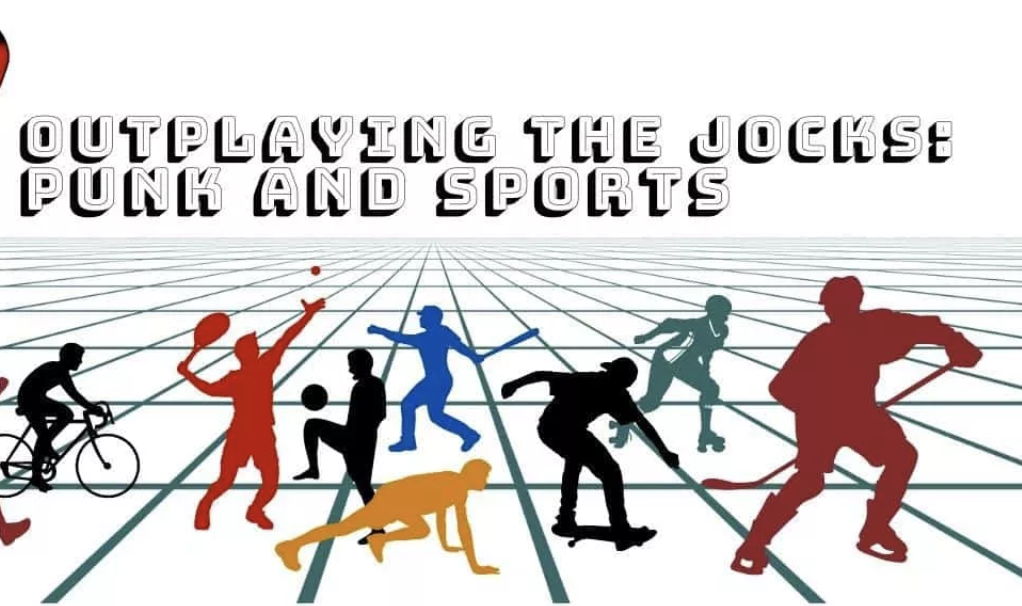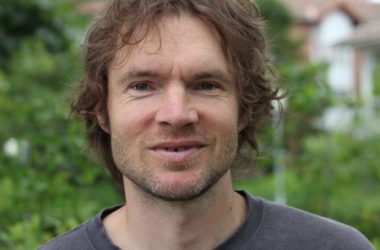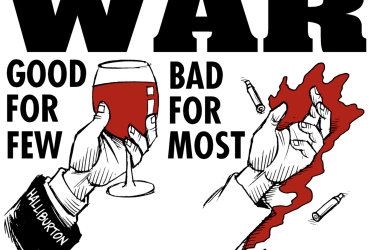By Gabriel Kuhn
DIY Conspiracy
Gabriel Kuhn explores the ever-present yet complicated relationship between punk and sports.
It would seem that punk and sports don’t really go together. Wasn’t jock culture pretty much the antipode to punk? There are plenty of stories about jocks and punks battling it out, quite literally.
7 Seconds recorded a song called “I Hate Sports”. Void’s “Organized Sports”, from the legendary Faith/Void Split LP, isn’t pro-sports either, I believe, although, frankly, I have never been able to decipher the lyrics. In any case, if you scratch the surface, it’s all a little more difficult. In fact, sports feature in punk in various ways, even if the relationship remains complicated.
Let’s start with revisiting the jock/punk divide. It wasn’t always as clear as it seemed. With certain hardcore currents, it got blurry. Aesthetically, youth crew bands were hard to distinguish from your average jocks, and physical fitness—in the form of weightlifting, martial arts, and yoga—became part of the culture. With Boston’s Ten Yard Fight, even gridiron did! (Sorry folks, we’re European here and gotta keep the word “football” for what others call “soccer”.) It all went beyond youth crew, too. Hell, John Joseph would go on to become a triathlete! (Which is not to say that endurance sports only appeal to US hardcore veterans. Chumbawamba’s Boff Whalley has written a book about fell running, titled Run Wild.)

Then, there was, of course, the close connection between punk and skateboarding (and, to a lesser degree, surfing and snowboarding). “Skate punk” and “surf punk” have even been hailed as their own genres. It all became very commercial (both the culture and the music), but many of the old schoolers resisted skating tournaments as well as punk rock tours being taken over by corporate sponsorship.
Then there’s roller derby. Is it punk? The aesthetics are without a doubt, and there is a strong DIY element. That roller derby is pretty much run by women is, sadly, not characteristic of punk, but this only provides an extra incentive to tie the two together: a sport making a really positive contribution to the culture!

Mainstream sports aren’t alien to punks either. Ten Yard Fight were already mentioned. Geoffrey Oi!cott is a cricket-themed band named after the Yorkshire cricketer Geoffrey Boycott.
Hockey has probably been featured most prominently. There was Slapshot, the NoMeansNo spin-off The Hanson Brothers (named after the hockey-themed film), the more obscure The Zambonis (named after the machine that resurfaces the ice), and Comeback Kid (named after Mario Lemieux). DOA had a number of hockey songs, with their hockey version of “Pencil Neck Geek” being a huge personal favorite. There was also a punk hockey zine called Give ‘em the Lumber, which I feel proud to have contributed to.

Anti-Flag once promoted a T-shirt with the slogan “Drop Pucks, Not Bombs”, explaining: “Let’s be honest. Hockey is the most punk sport. It’s fast, brutal, and perfect for those of us with ADD.” Sounds great. Unfortunately, hockey is also white, conservative, and perfect for psychopaths. As stated above: the relationship remains complicated.
Unsurprisingly, football, the world’s most popular sport, also has its share of punk fans. Mind you, even punks with no interest in football at all can be caught in FC St. Pauli merchandise.
The club has come a long way. Italy’s Los Fastidios have written an anthem for punk football fans with “Antifa Hooligans”. The Cockney Rejects are avid supporters of West Ham, Spain’s Ska-P of Rayo Vallecano, and Germany’s Die Toten Hosen of Fortuna Düsseldorf (even if their song “Hier kommt Alex” wasn’t about the former Fortuna Düsseldorf manager Aleksandar Ristić but Alex of Clockwork Orange). Punk songs about football are so numerous that we’ve listed a personal top ten. You can even find football tournaments organized by punks—I have heard great things about the one in Toruń, Poland.
The French emo punk band SPORT has a very eclectic—and unusual—approach. The songs of their first album, Colors, were all named after host cities of Olympic Games. The songs of their second album, Bon Voyage, were named after late athletes, one of them Ulrike Maier, an Austrian downhill skier whose deadly crash in Garmisch-Partenkirchen I saw as a young man on live television—a near traumatic event.

There’s a broad crossover of punk, antifascism, and self-defense, including self-run gyms. Many punks are avid cyclists and an important contingent of Critical Mass rides. Some even make a living out of cycling, like Tribe 8’s Lynn Breedlove, who worked for years as a bicycle messenger in San Francisco (bloody tough riding). Punks do parkour, go hiking, and enjoy Tai Chi. There’s plenty of physical activity echoing the ideals of the workers’ sport movement: sport as a means of personal and collective empowerment, not as a competitive spectacle to make money by dividing people into winners and losers.
I love sports, and it would come easy for me to propagate it as something everyone, punks included, should embrace. But, frankly, what would be the point of that? If you don’t like sports, do something else. It’s probably all for the better. Yet, sports aren’t inherently evil. They have their benefits, and they can be played in punk manners. DIY all the way.
Many thanks to Mittens XVX for very valuable info!







